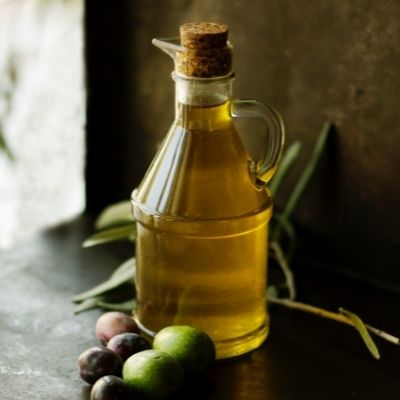
Why Olive Oil and Which One?
For millennia, household and professional cooks have used olive oil not just in their cooking but in lamps, skin treatments, beauty treatments and medicinally. In cooking it is thought to have been used since 5th or 4th century BC. With that kind of history there must be something or several things that this oil has to offer. Let us find out what those are:
Health Benefits
The Mediterranean Diet is rightly credited for its health benefits and relies heavily on olive oil. Studies have linked olive oil to numerous health benefits such as lower cardiovascular disease, lower diabetes and cholesterol, lower breast cancer risk and even lower inflammation from arthritis.
Combined with other health giving foods such as fruit, vegetables, wholegrains, fish, nuts, pulses and a little meat the Mediterranean Diet brings huge health benefits, even including benefits to mental wellbeing.
Flexibility in cooking
Olive oil is a monounsaturated fat or MUFA. Monounsaturated fats are not as fragile as polyunsaturated fats, making them a sturdy fat that can stand up to heat better than polyunsaturated fats. That means that you can even cook with olive oil. In fact, olive oil contains a plethora of antioxidants such as polyphenols. Polyphenols have been extensively researched. They are one of the reasons why olive oil does not oxidize, as you would expect it to under high heat conditions.
Even better news – it turns out that extra virgin olive oil may even be the better option to cook with. That’s because the olives are cold-pressed and barely processed (hence the “extra virgin” name), the oil contains a higher amount of those protective antioxidants than standard olive oil which is more processed.
What to look for
Smell and Taste
Olive oil should taste and smell distinctive – green grass, green tomato or even artichoke are descriptions of smells to be expected, not the smell of olives as one might expect. It’s the smell not the colour that should give away its quality and also tell you if it has been adulterated (sadly, a common practice).
“Once someone tries a real extra virgin—an adult or a child, anybody with taste buds—they’ll never go back to the fake kind. Its distinctive, complex, the freshest thing you’ve ever eaten. It makes you realize how rotten the other stuff is, literally rotten.” Tom Mueller
Dark Bottle Storage
The dark coloured bottle helps the extra virgin olive oil stay fresher for longer. If you keep your olive oil in a clear bottle, near heat and light, then the oil will degrade quicker. Think about this when buying olive oil too, make sure it hasn’t been displayed in a sunny part of the shop nor under bright, fluorescent lights. Buy extra virgin olive oil that’s in a dark bottle and keep it in a cool cupboard to make sure it’s giving you the best nutrition. Remember that olive oil is the opposite of wine. It is not meant to age. Think of it as fresh fruit juice. Olive oil is good for about two years if stored in optimum conditions.
Single Country of Origin
Ideally the olive oil you buy will be made using olives from just one country. Even better than this is if you know which farm within that country the olives were grown. The clues will be on the bottle so read carefully.
Check the Best Before date
And not just the best before date but check if you can see a ‘harvest date’ too. The fresher the extra virgin olive oil, the higher those healthy phenols.
With all this information in mind you should now be well equipped to buy the best olive oil (extra virgin of course) your budget can afford and know that you are getting the most nutritious. Store it well and use it soon. Enjoy!
